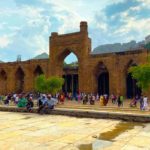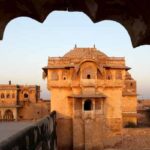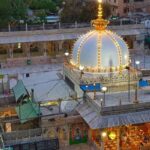Akbari Fort Museum Ajmer, situated in Ajmer, India, stands as a majestic testament to the region’s rich history and architectural heritage. Originally built by Emperor Akbar in the 16th century, this imposing fortress has endured centuries of conquests and cultural transformations.
The fort’s strategic location atop a hill offers panoramic views of Ajmer city and its surroundings. Its sturdy ramparts, intricate carvings, and imposing gateways reflect the grandeur of Mughal architecture.
Within the fort complex lies the Akbari Museum, a treasure trove of artifacts spanning various historical periods. Visitors can explore a diverse collection of relics, including ancient weaponry, intricate textiles, exquisite pottery, and ornate jewelry. Each artifact narrates a compelling tale of the region’s vibrant past, offering glimpses into the lives of its erstwhile rulers and inhabitants.
The Akbari Fort & Museum serves as a cultural beacon, inviting tourists and history enthusiasts to delve into Ajmer’s illustrious legacy and unravel its fascinating tales of valor, artistry, and resilience.
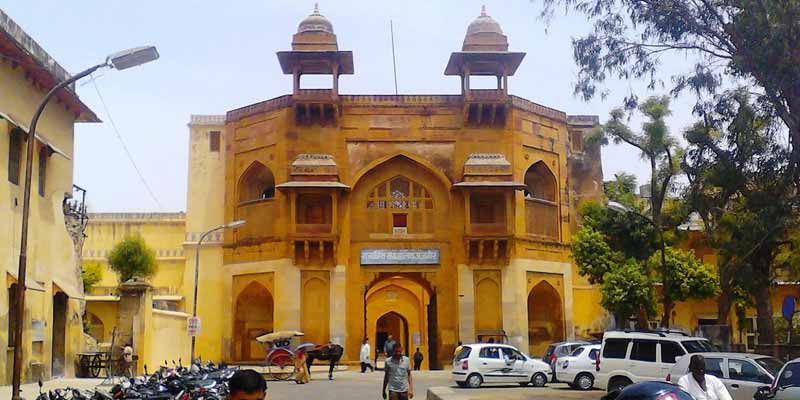
History of Akbari Fort & Museum Ajmer
The Akbari Fort & Museum in Ajmer, Rajasthan, has a rich history dating back to the Mughal era in India. It was commissioned by Emperor Akbar in the late 16th century as part of his strategic military campaigns in the region Museums in Rajasthan.
Emperor Akbar, known for his keen interest in architecture and fortifications, ordered the construction of the fort atop a hill overlooking the city of Ajmer. The location was chosen for its strategic advantage, offering a commanding view of the surrounding landscape and serving as a stronghold to control the region.
The fort served as a military garrison and administrative center during Akbar’s reign, playing a crucial role in maintaining Mughal control over the area. Over the centuries, the fort witnessed various battles, conquests, and changes in rulership as different dynasties vied for power in the region.
In more recent times, the fort underwent renovations and restoration efforts to preserve its historical significance. It was converted into a museum, showcasing artifacts, relics, and exhibits that offer insights into Ajmer’s cultural heritage and the Mughal period in India.
Today, the Akbari Fort & Museum stands as a prominent landmark in Ajmer, attracting tourists, historians, and art enthusiasts from around the world who come to explore its rich history and architectural splendor. It serves as a reminder of the region’s storied past and its enduring cultural legacy.
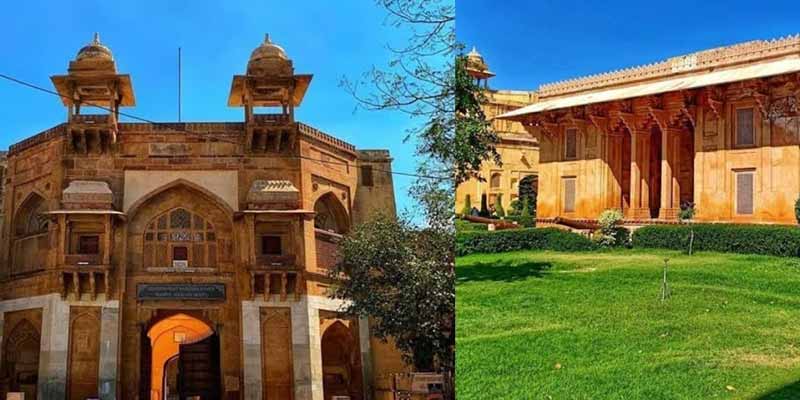
Places to Visit Near Akbari Fort & Museum Ajmer
There are several fascinating places to visit near the Akbari Fort & Museum in Ajmer, offering a diverse range of cultural, historical, and natural attractions. Here are some notable destinations:
Ajmer Sharif Dargah: Located near the foot of the Akbari Fort, the Ajmer Sharif Dargah is one of the most important Sufi shrines in India. It is the final resting place of the revered Sufi saint, Khwaja Moinuddin Chishti, and attracts millions of devotees and pilgrims from different faiths.
Ana Sagar Lake: This picturesque artificial lake, built by Anaji Chauhan, is a serene spot for relaxation and recreation. Visitors can enjoy boating and picnicking along its shores while admiring the scenic beauty of the surrounding hills.
Adhai Din Ka Jhonpra: A historical mosque situated just a short distance from the fort, Adhai Din Ka Jhonpra is renowned for its unique architecture and intricate Islamic calligraphy. It is believed to have been constructed in just two and a half days, hence its name.
Taragarh Fort: Also known as the Star Fort, Taragarh Fort is located on a hilltop overlooking Ajmer. It offers panoramic views of the city and surrounding landscape, along with historic structures and ruins to explore.
Mayo College: Founded in 1875, Mayo College is one of the oldest and most prestigious boarding schools in India. The campus boasts impressive colonial-era architecture and sprawling grounds.
These attractions near the Akbari Fort & Museum provide visitors with a diverse range of experiences, from spiritual pilgrimage to historical exploration and natural beauty, Rajasthan Budget Tours.
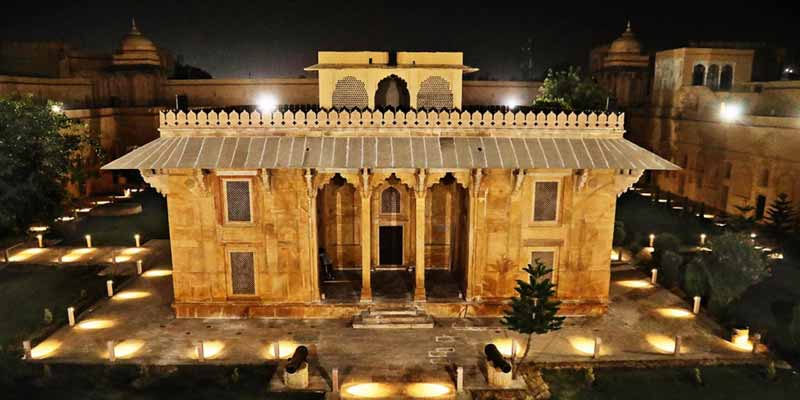
How to Reach Akbari Fort & Museum Ajmer
To reach the Akbari Fort & Museum in Ajmer, you can use various modes of transportation depending on your starting point:
By Air: The nearest airport to Ajmer is the Jaipur International Airport, located approximately 135 kilometers away. From there, you can hire a taxi or use public transportation to reach Ajmer.
By Train: Ajmer Junction Railway Station is well-connected to major cities across India, including Delhi, Mumbai, Jaipur, and Ahmedabad. Once you arrive at the railway station, you can hire a taxi or an auto-rickshaw to reach the Akbari Fort & Museum, which is located about 3 kilometers away.
By Road: Ajmer is well-connected by road to major cities in Rajasthan and neighboring states. National Highway 8 passes through Ajmer, making it easily accessible by car or bus. You can hire a taxi, take a private car, or use intercity buses to reach Ajmer. From the city center, you can reach the Akbari Fort & Museum by taxi, auto-rickshaw, or even by walking if you prefer.
Once you reach Ajmer, the Akbari Fort Museum Ajmer is located near the city center, making it convenient to access from various parts of the city. You can ask locals for directions or use GPS navigation for guidance.



